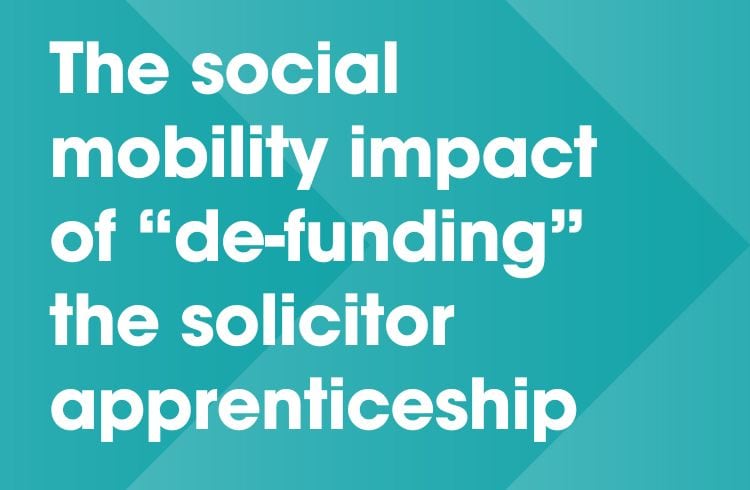Customer Service Practitioner Apprenticeship (Level 2)
Customer service apprentices work in a range of settings and interact with customers face-to-face, by telephone, post, email, text and social media. They develop strong product and service knowledge and work in line with their employer’s customer service standards and regulatory requirements to deliver an outstanding customer experience.
For customer service apprenticeships in healthcare environments, we can also provide the Mediterm Level 2 Award in Medical Terminology (a small additional fee applies).
Benefits to your business
Customer service apprenticeships can make a real impact on organisations. For example, apprentices can:
- Improve the quality and efficiency of customer services
- Enhance customer retention and brand reputation
- Inject fresh ideas and new ways of working, improving retention and morale
- Demonstrate your commitment to staff development, creating a more positive and productive working environment.

The Damar Difference
We work in partnership with our employers, to deliver long-term value through our apprenticeship training. Some key features of our customer service apprenticeships include:
- Coaching: Structured and engaging coaching visits and sessions – tailored to apprentices’ roles and organisations, so that apprentices can apply learning and enhance workplace performance.
- Pathways: Specialist medical pathway which supports working and communicating in healthcare settings.
- Our people: An experienced team to support and empower you and your apprentice, to ensure they achieve the qualification and have an impact on your organisation.
- Our processes: Our one-team approach offers a seamless enrolment and onboarding process, which leads into carefully planned, manageable chunks of learning.
Our systems: Our accessible and engaging systems include OneFile, Profiler, Damar OpenLearning, and our apprentice forums.


“Our apprentice manages our inbox, prioritising messages and flagging things up to higher levels when needed. The way our apprentice has taken everything on board, it’s just helping the service run so much smoother.”
Ann-Marie McGilvray
ICS Administration Manager
Wrightington, Wigan and Leigh NHS Trust
Apprenticeship delivery
Customer service apprenticeships are delivered through:
- Pre-work: Reading or video content relating to the module.
- Group coaching session: Apprentices ask questions, discuss their learning with peers and prepare themselves for the individual activity.
- Individual learning activity: Apprentices work through the activity brief, building their evidence to support the portfolio and end-point assessment. This allows the apprentice to embed and contextualise their learning.
- Main learning: Self-directed, interactive content on our online learning platform.
- 1:1 Coaching visit: Every six weeks the coach and apprentice meet to review progress, discuss personal development and sign-off completed modules.
- Review meeting: Every 12 weeks the coach, apprentice and line manager meet to review progress.
Customer service apprenticeships take 15 months (including preparation for end-point assessment).
People of all ages and educational backgrounds can undertake customer service apprenticeships, but there are some restrictions, the most important of which are:
- The employer and the training provider must ascertain that the apprenticeship will allow the individual to gain substantive new skills. The training therefore needs to be materially different from any prior qualification or previous apprenticeship.
- The apprenticeship must align with the skills needs of the apprentice’s role.
- The apprentice must be employed, usually for 30+ hours a week, and work more than 50% of their time in England.
- All apprenticeships must take at least 12 months with apprentices spending a minimum of 6 hours per week in off-the-job training. All Damar apprenticeships plan for more than the legal minimum. There is more on how we maximise the benefits of off-the-job training here: https://damartraining.com/news/2023/so-what-is-off-the-job-training/.
Customer service apprenticeships are formed of nine carefully planned and sequenced 6-week modules that help apprentices learn and apply the knowledge, skills and behaviours required for each of the core occupational duties undertaken by customer service practitioners.
- Module 1: personal presentation, professional language, developing self
- Module 2: personal organisation, product & service knowledge
- Module 3: understanding your organisation, brand promise, core values and policies
- Module 4: knowing customers, being open to feedback
- Module 5: regulations & legislation, equality
- Module 6: interpersonal skills, communication, influencing skills
- Module 7: systems and resources, teamworking, your role and responsibilities
- Module 8: dealing with conflict, challenging customers
- Module 9: customer experience, right first time
Employer partners and apprentices are supported throughout the apprenticeship. The apprentice has a dedicated coach who provides 1:1 support, alongside the group coaching sessions and apprentice forums where they can engage with other appentices on the same programme. Review meetings with the apprentice, line manager and coach are held every 12 weeks. All of our employers also have a business development manager/executive they can contact at any time.
All apprenticeships embed the functional use of maths and English as well as personal development topics in areas such as equality and diversity and British Values. Apprentices unable to evidence maths and English at GCSE level 4 or above may need to take functional skills exams as part of the apprenticeship. Additional training is provided if necessary.
- A showcase, prepared by the apprentice that demonstrates their professional competence (65% weighting)
- Practical observation (at least 1 hour) with independent end-point assessor (20% weighting)
- Professional discussion (1 hour) with independent end-point assessor (15% weighting).
Customer service apprenticeships are a springboard for progression to more senior customer service roles but also to more senior administrative, team leading and management positions. Damar apprentices have progressed to other higher-level apprenticeships, most commonly business administrator, team leader or supervisor.
If your annual UK wage bill is over £3 million, the cost of training can be funded via the Apprenticeship Levy. We can help you navigate your Apprenticeship Service account to access this funding.
If your annual UK wage bill is below £3 million, the government covers 95-100% of the training costs.
For apprentices aged up to 21, the apprenticeship is fully government-funded*. For apprentices aged 22 and over, the apprenticeship is 95% government-funded*. These new funding rules are applicable to apprentices starting from 1 April 2024.
*Please note: Some apprenticeships have accreditation costs which are not eligible for government funding
We have regular start dates throughout the year for our apprenticeships. Please get in touch for more information.


